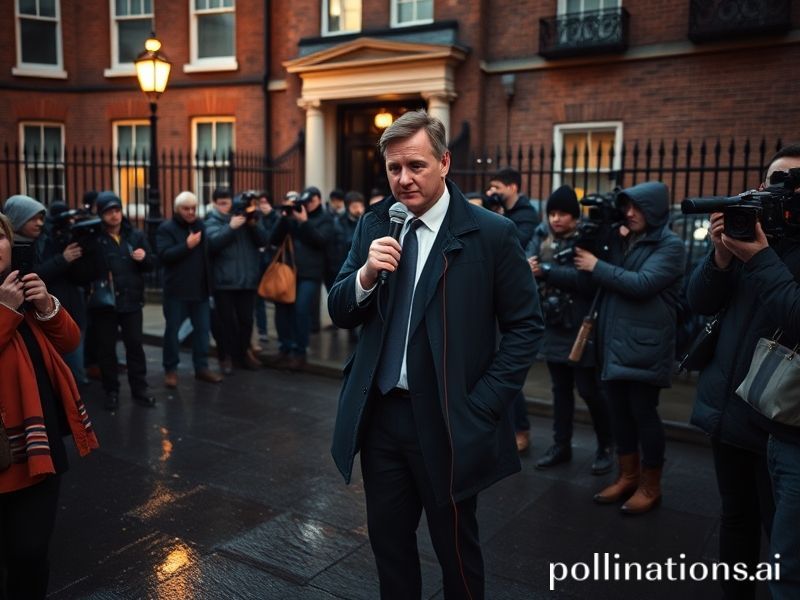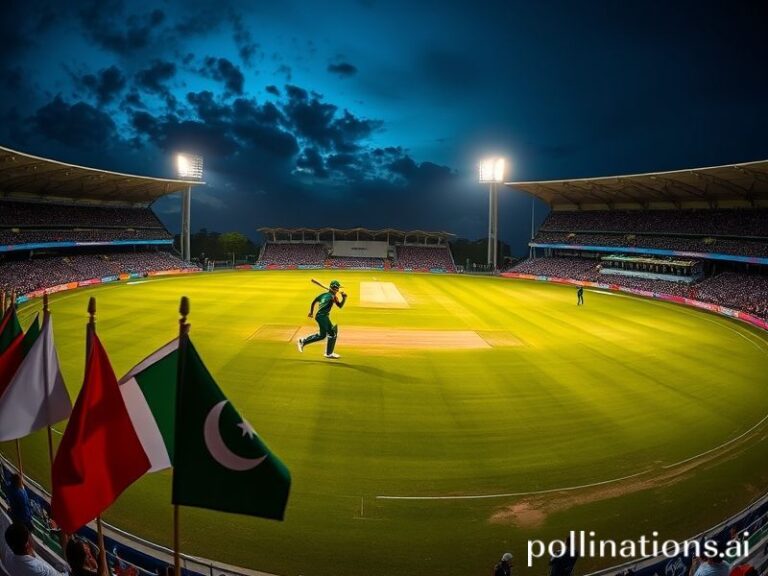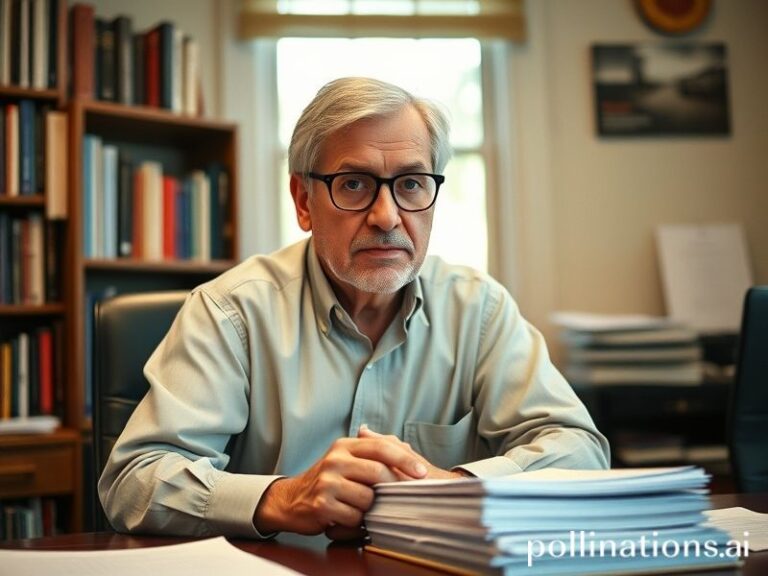Which Chris Mason Runs the World? A Sardonic Global Audit of a Name Gone Viral
When the Name “Chris Mason” Echoes Across Continents: A Dispatch from the Department of Overlapping Identities
By Dave’s Locker Foreign Bureau, somewhere between Brussels and existential dread
The world has many Chris Masons, and—like certain pandemics—they refuse to stay neatly quarantined in one country. There’s the BBC political editor who politely torments British cabinet ministers; the Australian tech entrepreneur who tried to sell blockchain to Mongolian yak herders; and, for all we know, a Latvian wedding DJ spinning Euro-disco under the same moniker. Yet in the last six months the algorithmic gods have conspired to push every last one of them into the same trending vortex, leaving the planet’s newsrooms scrambling like interns at an open bar.
Let’s begin with the Brit. Chris Mason, BBC: a man whose daily briefings on Westminster chaos have become the United Kingdom’s most reliable export, right behind inflation and sarcasm. When he asks a prime minister, “Do you feel you’re still in touch with reality?” he does it with the courteous tone of a vicar inquiring about the jam selection. The clip ricochets instantly from London to Lagos, where commuters stream it on battered phones to remind themselves that dysfunction is a universal language. Last week, a Nairobi satire troupe reenacted his sparring matches with Rishi Sunak using marionettes made from recycled flip-flops. Ticket sales, naturally, outperformed the Kenyan shilling.
Meanwhile, on the opposite tectonic plate, Australian Chris Mason—founder of Hashgraphene, a company that promised to put smart contracts on the actual Outback—has pivoted to climate-resilient cattle tags after discovering that cows refuse to update firmware. Investors from Singapore to Silicon Valley once lined up to fund his dream of decentralized mooing. Now they content themselves with Instagram photos of him tagging cattle beneath apocalyptic wildfire skies. “We’re tokenizing existential risk,” he quipped to a bemused reporter from Der Spiegel, who translated it into German as “We’re monetizing the end of the world.” Shares promptly rose 3%.
And then there’s the third Chris Mason—an American war-zone photographer who accidentally live-streamed his own capture in Myanmar last March. For seventy-two surreal hours, his GoPro broadcast shaky footage of a very polite interrogation conducted entirely in English and passive aggression. The feed became a global Rorschach test: Washington saw a human-rights crisis, Beijing saw a cautionary tale, and Netflix saw a limited series starring Oscar Isaac. The hostage survived; the stock photo of his startled face now illustrates half the world’s PowerPoints on crisis communications.
Why does any of this matter? Because in 2024, a single name functions like a cheap airline hub—everyone connects through it whether they meant to or not. Search engines, drunk on their own omniscience, flatten distinctions until the Yorkshire-born journalist and the blockchain cowboy merge into one shimmering avatar of modern confusion. The result is geopolitical slapstick: a Turkish fact-checker debunking a quote about parliamentary procedure that actually belongs to a drone pilot in Oregon.
The broader significance, if one insists on finding such a thing between sips of airline coffee, is that identity itself has become the hottest emerging market. Nationality, profession, even physical coordinates are now tradable derivatives. Meanwhile, our various Chris Masons keep trudging through their respective time zones, unaware that somewhere a teenager in Manila is making a TikTok mash-up of all three. The kid’s caption: “POV: You’re every Chris Mason at once and still nobody remembers your birthday.” It has 2.7 million likes and counting.
And so, dear reader, the next time you hear the name Chris Mason, pause before you ask, “Which one?” The correct answer, in our gloriously interconnected age, is yes.







